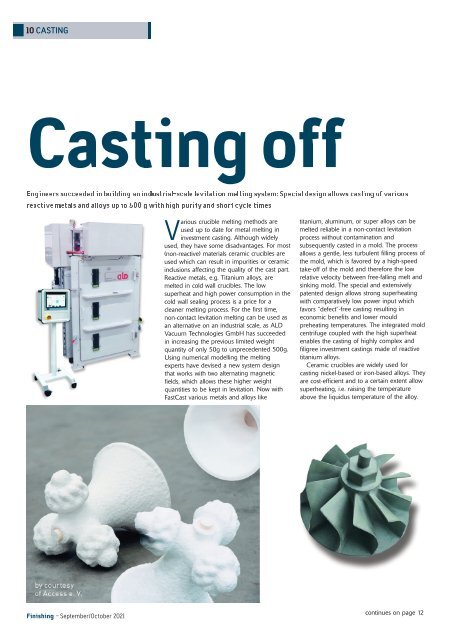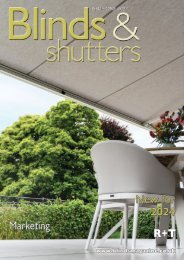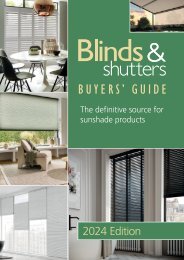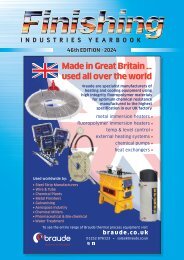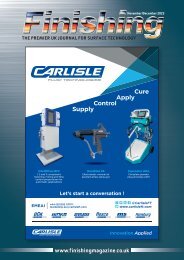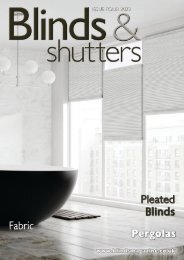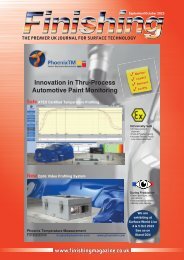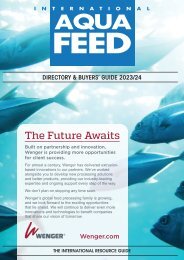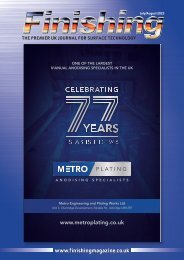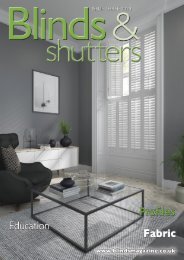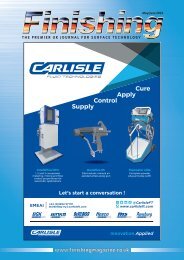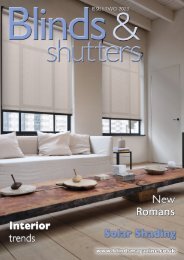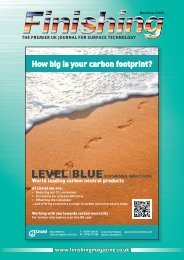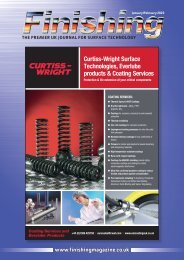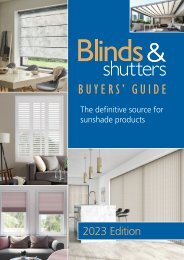You also want an ePaper? Increase the reach of your titles
YUMPU automatically turns print PDFs into web optimized ePapers that Google loves.
10 CASTING<br />
Casting off<br />
Various crucible melting methods are<br />
used up to date for metal melting in<br />
investment casting. Although widely<br />
used, they have some disadvantages. For most<br />
(non-reactive) materials ceramic crucibles are<br />
used which can result in impurities or ceramic<br />
inclusions affecting the quality of the cast part.<br />
Reactive metals, e.g. Titanium alloys, are<br />
melted in cold wall crucibles. The low<br />
superheat and high power consumption in the<br />
cold wall sealing process is a price for a<br />
cleaner melting process. For the first time,<br />
non-contact levitation melting can be used as<br />
an alternative on an industrial scale, as ALD<br />
Vacuum Technologies GmbH has succeeded<br />
in increasing the previous limited weight<br />
quantity of only 50g to unprecedented 500g.<br />
Using numerical modelling the melting<br />
experts have devised a new system design<br />
that works with two alternating magnetic<br />
fields, which allows these higher weight<br />
quantities to be kept in levitation. Now with<br />
FastCast various metals and alloys like<br />
titanium, aluminum, or super alloys can be<br />
melted reliable in a non-contact levitation<br />
process without contamination and<br />
subsequently casted in a mold. The process<br />
allows a gentle, less turbulent filling process of<br />
the mold, which is favored by a high-speed<br />
take-off of the mold and therefore the low<br />
relative velocity between free-falling melt and<br />
sinking mold. The special and extensively<br />
patented design allows strong superheating<br />
with comparatively low power input which<br />
favors “defect”-free casting resulting in<br />
economic benefits and lower mould<br />
preheating temperatures. The integrated mold<br />
centrifuge coupled with the high superheat<br />
enables the casting of highly complex and<br />
filigree investment castings made of reactive<br />
titanium alloys.<br />
Ceramic crucibles are widely used for<br />
casting nickel-based or iron-based alloys. They<br />
are cost-efficient and to a certain extent allow<br />
superheating, i.e. raising the temperature<br />
above the liquidus temperature of the alloy.<br />
<strong>Finishing</strong> - <strong>September</strong>/<strong>October</strong> <strong>2021</strong><br />
continues on page 12


